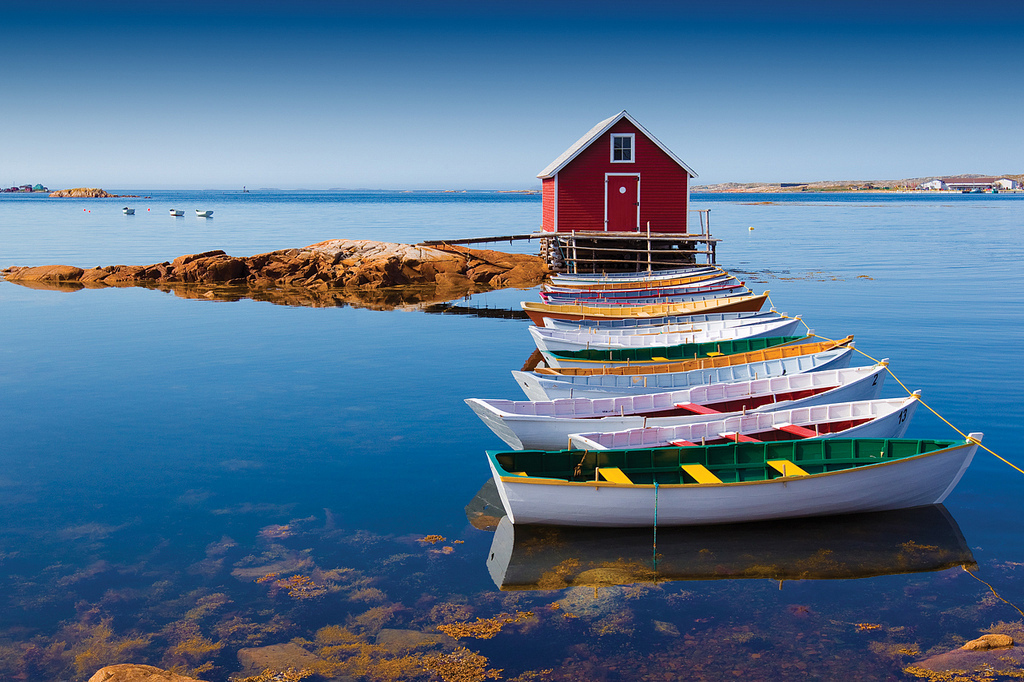
There are few things that evoke more longing and excitement than the idea of visiting somewhere new, but my question is why go at all? Most people focus on the destination rather than paying attention to the why. What are you searching for on this trip? What can travel provide that you aren’t able to experience at home?
It could be something as simple as sunshine, the exotic, an adventure, or for the sake of curiosity. Or perhaps it’s something more intangible, like a sense of otherness, anonymity, or even to break your daily routine.
What travellers often seek is the idea of travel rather than the actuality of it. In fact, this Dutch research has shown that people gain more pleasure from the planning of their journey than from actually going. The dream is of a wonderful, sensual, mysterious far-off land where life is so very different. But is it really? To people from rural Africa, wouldn’t Birmingham seem exotic? Wouldn’t supermarkets, drive-through restaurants and public transport seem amazing - wondrous almost? Yet we take these things for granted, they’re normal - boring even; so too are the white sandy beaches of Thailand, if that’s where you’ve always lived. Does the Colosseum seem less amazing if you ride past it every day on your way to work? If the destination was the answer, why would people in those very places travel away from them?
Typically people have focused on the hardware of travel: the hotels, the sites, and the guidebook’s checklist of things they had to do or the experiences they had to have. Famously, the original “must do” holiday was the Grand Tour, which flourished from the mid-1600s to the mid-1800s. Wealthy aristocrats toured Europe, stopping in the same location as everyone else, and for the same reason. Then came the family package trip, hundreds of families all going to the same sunny destinations. In the 1980s the focus became hotels – the bigger and flashier the better. Today the big trend is experiential travel, going somewhere for a specific experience.
However there is little reflection on how people want to feel after their travels, and how their destination might contribute to that. What if instead of travelling to go somewhere, we undertook an inner journey through travel? To broaden our understanding of ourselves, our motivations and needs to make us appreciate our own home country.
Travelling for therapy with us is unusual; we are far from your average company. We won’t try to sell you a destination or a particular hotel. Instead we will work with you to uncover what it is you hope to gain through travel, are you seeking tranquillity and relaxation? Then perhaps we’d recommend the heart of Tokyo during rush hour. With help from a Zen master, you’ll learn to appreciate the intricate beauty and rhythms of the flow of commuters; in turn, bringing peace to your own daily travels once you return home.
Perhaps you suffer with insomnia, constantly tossing and turning yet never truly getting a good night’s sleep. Instead of hot chocolate and meditation, why not come with us to Svalbard in the Arctic Circle? Here they experience more than 100 days each year where the sun never sets. You’ll meet the locals and discover how to get the perfect night’s sleep during the brightest of nights.
Inspiration can be found in the most unlikely of places; which means challenging typical ideas of culture. Is the culture of a country the opera, high society and etiquette, or is it something completely different? Perhaps it’s what people do, who they are, what they eat and how they view the world? To learn about culture and people’s way of life, might a Texan oil field have more to teach you than a Parisian museum?
Perhaps you have your own personality trait that you feel could be improved. Maybe you’re shy, like to always be in control, or lonely and find it hard to connect with people. With the right help, and of course the correct travel company, you could save yourself a trip to traditional therapy. Why not go to Japan if you have trouble meeting people? As so many Japanese don’t speak English, you’ll have to find ways to communicate that don’t include language. It’s amazing what a smile, a bow, or even a nod of the head can say for you. Once home you’ll have become so accustomed to smiling at people, nodding in agreement and being courteous, people will notice and you’ll find meeting people much easier.
The act of travel is ages old. The challenge is to think differently about it so that you derive more benefit from your precious time away from home. Instead of travelling just for a destination, travel for a goal. Seek a purpose beyond getting a tan, one that provokes your inner journey.
This approach is something new and does require a deeper look into yourself; asking high order questions that you may not have time to answer in the bustle of everyday. But the reward is overwhelmingly worth it. So why not take the time to think about why you might like to travel; then savour the planning process, gaining as much pleasure from the ideas as others do from travel. Finally put thought into what you hope to achieve by travelling - only then does the destination become important.
Thought in travel? Now there’s a thought.
